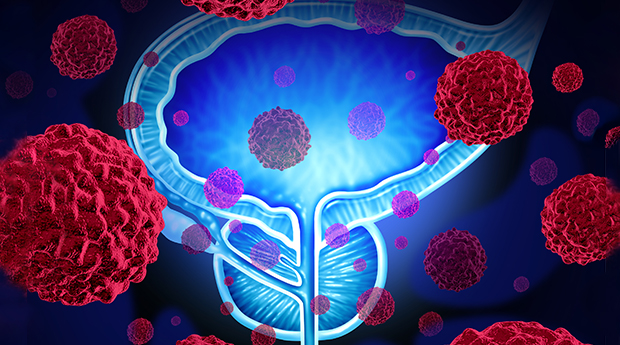Trial confirms Hypofractionated radiotherapy (H-RT) should be standard protocol for low risk prostrate cancer
Source: NRG Oncology, Pennsylvania Feb 17, 2019 6 years, 11 months, 1 week, 6 days, 19 hours, 15 minutes ago
The NRG Oncology clinical study NRG-RTOG 0415 determined that a hypofractionated radiotherapy schedule (H-RT), a treatment schedule that delivers a total dose of radiotherapy over a shorter period of time, is not worse than the conventional radiotherapy schedule (C-RT) in terms of bowel, bladder, sexual, and general quality of life (QOL) as well as anxiety and depression for men with low risk prostate cancer.
NRG-RTOG 0415, a phase III non-inferiority trial compared two fractionation schedules for men with low risk prostate cancer. A total of 1,092 men from the United States, Canada, and Switzerland were randomly assigned to one out of two treatment schedules. Men on the first treatment arm received C-RT at 73.8 Gy in 41 fractions over the course of 8.2 weeks. Men on the second treatment arm received H-RT at 70 Gy in 28 fractions over the course of 5.6 weeks. 962 patients consented to participating in the QOL study.
Patients on both arms were assessed at baseline, 6, 12, 24, and 60 months through the Expanded Prostate Index Composite (EPIC) for bowel, urinary, sexual and hormone domains, the Hopkins Symptom Checklist (HSCL) measuring anxiety and depression, and the Eq5D measuring QOL. There were no statistically significant differences in arms at any point for HSCL and Eq5D as well as no differences in physician reported grade three or greater gastrointestinal or genitourinary adverse events (AEs). There were no statistically significant differences in change score between arms with respect to the EPIC domain scores, except at 12 months with the H-RT arm exhibiting a larger decline in the bowel domain. However, this decline did not meet the a priori threshold of an effect size of 0.5 for clinical significance.
"These results provide a tipping point of evidence, when added to similar trials, that a hypofractionated treatment schedule should be the standard of care for men with
low risk prostate cancer who choose among all options to be treated with radiotherapy. The primary outcomes of NRG-RTOG 0415 demonstrated no difference in progression and survival between arms, and the results here confirm that there are also no differences in the important outcomes to patient of adverse events, quality of life, and resources utilized," stated Deborah W. Bruner, RN, PhD, FAAN, the Emory University Senior Vice President for Research and the lead author of the NRG-RTOG 0415 manuscript. "The most frequently patient-cited disadvantage of radiotherapy is the long duration of therapy. This treatment would be more convenient for these men, would mean a decrease in the hours spent in treatment and away from family or work, and would cost them less."
EPIC compliance rates ranged from 89.7% at baseline, 66.0% at 1 year, 60.8% at 2 years, to 55.5% at 5 years and these rates were similar for the HSCL-25 and Eq5D.
Outcomes from NRG-RTOG 0415 support the evidence that H-RT should be considered standard of care and negates the argument that reduced treatment duration equates to clinically meaningful increased AEs and decreased QOL.
Reference:
Bruner DW, Pugh SL, Lee WR, Dignam JJ, Low D, Swanson GP, Shah AB, Malone S, Michalski JM, Dayes IS, Seaward SA, Nguyen PL, Hall WA, Pisansky TM, Chen Y, Sandler HM, Movsas B.
href="https://www.ncbi.nlm.nih.gov/pubmed/30763425">Quality of Life in Patients With Low-Risk Prostate Cancer Treated With Hypofractionated vs Conventional Radiotherapy: A Phase 3 Randomized Clinical Trial. JAMA Oncol. 2019 Feb 14. doi: 10.1001/jamaoncol.2018.6752. [Epub ahead of print] PubMed PMID: 30763425.
